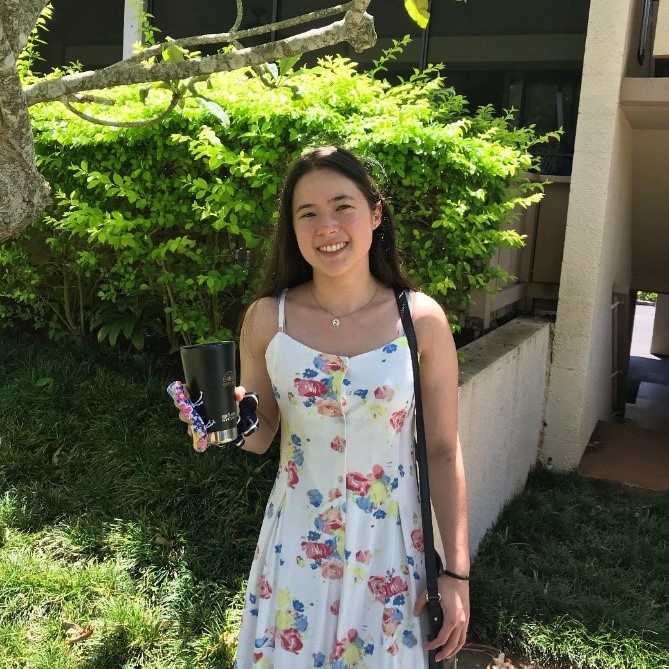
Featured Navigation Links
Study Abroad
Challenge Exams
Careers
Faculty and Staff
Modern Languages and Cultures
Degree Offered
Minor
China (or the Greater China that includes Taiwan and Hong Kong, the Special Administration Region of China) has increasingly become a major player on the political and economic stage in East Asia and in global politics. Its culture, philosophy, and arts have had lasting influence in the East Asian region. The opening up of China in the post-Mao era since 1976 has provided ample opportunities for scholarly pursuit, business and trade ventures, government and foreign services, and legal and other professional undertakings.
In response to the new opportunities and challenges, the Chinese Program sets forth not only to provide students with another option to meet the language requirement of the College of Arts and Sciences at SU, but also to prepare those who aspire to or are interested in the exploration of careers related to China.
Currently, Chinese Program offers Chinese language courses from elementary to the advanced levels. These courses, together with courses offered by the Asian Studies Major, provide students a broad, diversified and yet focused learning experience on China. Students can also choose to minor in Chinese in addition to their major.
SU graduates with a Chinese minor have found employment as U.S. diplomatic officer in China, marketing and salespersons in companies in Hong Kong and Shanghai, teaching English and French in Chinese institutions, pursuing IMBA in the MIT-China program in Beijing, pursuing internship and careers in international businesses and non-profit organizations home and abroad.
Program Summary
To earn a minor in Chinese, students must complete 35 credits with a minimum 2.00 GPA in one modern language.
In order to receive full credit for courses in Chinese, they must be taken in the numerical sequence (CHIN 1150-CHIN 2350) as listed below. A previous course cannot be repeated to improve a grade once a higher course in the sequence is in progress or has been completed.
-
Minor Requirements
-
To earn a minor in Chinese, students must complete 35 credits with a minimum 2.00 GPA in one modern language, including:
CHIN 1250 Chinese Language II (5 credits)
CHIN 1350 Chinese Language III (5 credits)
CHIN 2150 Chinese Language IV (5 credits)
CHIN 2250 Chinese Language V (5 credits)
CHIN 2350 Chinese Language VI (5 credits)
An integrated approach to understanding, speaking, reading, and writing in Mandarin Chinese and culture. These courses constitute a systematic study of Mandarin in the Romanized Pinyin and Chinese character systems.CHIN 2910-2930 Special Topics (1-5 credits)
CHIN 3150 Chinese Culture and Civilization (5 credits)
CHIN (3000-level or above) or minor related course (5 credits)
(see specific program for details)
An introduction to Chinese culture and civilization with emphasis on the impact of the cultural traditions on the Chinese contemporary lifestyles and cross-cultural comparisons. Taught in Chinese.
If a student’s native language is Mandarin Chinese, the student may not receive a minor.
Visit the Catalog for course descriptions
Students who waive elementary language courses may meet the 35 credit minor requirement by substituting upper-division courses in the language of the minor or approved courses in other disciplines that relate to their minor language.
*All students must take at least 20 credits at Seattle University in order to obtain a minor.

Growing up I had many ambitions, but for someone who had no previous knowledge of the Chinese culture or language it seemed unthinkable for me to move abroad. That’s exactly what I did, following my graduation in 2007 I packed up and moved to pursue my graduate studies in Beijing, China. I was able to build a solid foundation with the support from my professors as well as the tools and resources that the SU Modern Languages Department provided me. I went on to pursue an International MBA from Tsinghua University in Beijing. From there, I went on to build a career in Sports Marketing which I still do to this day. I credit all of my experiences at Seattle University and throughout China for directly affecting the opportunities and life experiences that have blessed me since graduation.

Learning Chinese has led to deep personal reflection of how my words, down to word ordering and tenses, impacts what I am saying, verbally and internally. When I studied linguistics in my history capstone, being able to relate our studies to Chinese made me ponder how accurate (or not) those theories were. When I write poetry, my inquiries about the possibilities and limitations for making meaning in English are informed by Chinese sentence structures. While working in the field of AI equity and technology policy, Chinese challenges me to think about how the dominance of English language is impacting technologies that are supposed to be meant for everyone. I’m thankful to Feng Laoshi for being a great professor throughout my time learning Chinese at SU!

Studying Mandarin Chinese at Seattle University taught me valuable life skills, and I am so happy I chose to minor in it! My name is Elena Chen Pendleton and I am currently a middle school teacher in Hawai’i. I originally took Mandarin because it is my mother’s first language, and I wanted to learn more so that I could speak it with her and my relatives in Taiwan. The professors were very encouraging and my classmates were friendly and helpful. The courses taught me important skills in Mandarin such as listening, speaking, reading and writing and I learned useful vocabulary I can use in the real world. You do not need to have any background in the language at all in order to minor in it! Studying a language taught me better study skills, organization tactics and time management.

Prior to coming to SU, I had taken German and Spanish language classes, however I have always wanted to learn an Asian language. I hope to have a future career in the FBI and being able to speak a foreign language will help me in that application process. I specifically picked Chinese because I thought it would be very interesting and completely different from what I have been exposed to in the past. Naturally, I was very nervous about learning Chinese given that I have never studied a character or a tonal based language, but after the first week of class, all of that stress melted away. The two Chinese professors I have taken classes from, Professor Feng and Professor Qian, teach the language so well and made sure that the class understood each concept, while making the environment fun.

Learning the basic skill to converse in our daily life was fun, but memorizing characters in Mandarin when it comes to reading and writing was a burden for me at first. However, the more I learn and immerse myself in the world of Mandarin, the more I found those characters are fascinating in their own way. Each character/radical has its own story and distinct association with the Chinese’s life. As I want to learn more about the Chinese culture, reading and writing was no longer a burden for me, especially when I can learn such beautiful and appealing behind-the-scene story of the characters and how it directly reflects the people’s life. This experience of taking Mandarin classes at SU has fully aided my personal development as I learn and understand more about Chinese culture.
.jpg)
Earning a Chinese minor at SU not only taught me a second language, it expanded my perspective on our global world. From music to menus, the ability to understand and speak Chinese has helped build my knowledge of cultures different from my own. Attaining this minor is only one stop on the road to true fluency, and I have been inspired by my studies to one day live in China to further learn and explore this beautiful language.

One of the most transformative and impactful learning experiences at SU was the opportunity to learn Mandarin. Being bilingual in Spanish and English, I wanted to learn a new language that is integral to international relations. By learning Mandarin, I also discovered Chinese cultural nuances that would have been overlooked had I not learned the language. I coupled my passion for learning Chinese with my knowledge of Latin America to pursue a career focused on analyzing their political and economic relationship. The Chinese Language program at Seattle University set the foundation for what will be my lifelong passion of learning languages to inform my understanding of the dynamics of the international community.

Career Readiness/Skills Inventory
Being “career-ready” means that you’ve developed a range of skills that you can transfer to different settings once you graduate. At Seattle U, we take your career readiness seriously, so we’ve created an inventory and program-level map for you to help you see what skills you’re likely to practice in your major or, as in this case, as you study your first year of a language.
Formal application through the Department of Modern Languages and Cultures is required
Contact Us
Noelle Hardman
Administrative Assistant
206.296.5380
nhardman@seattleu.edu
Sonia Barrios Tinoco
Chair
206.296.2458
barrioss@seattleu.edu